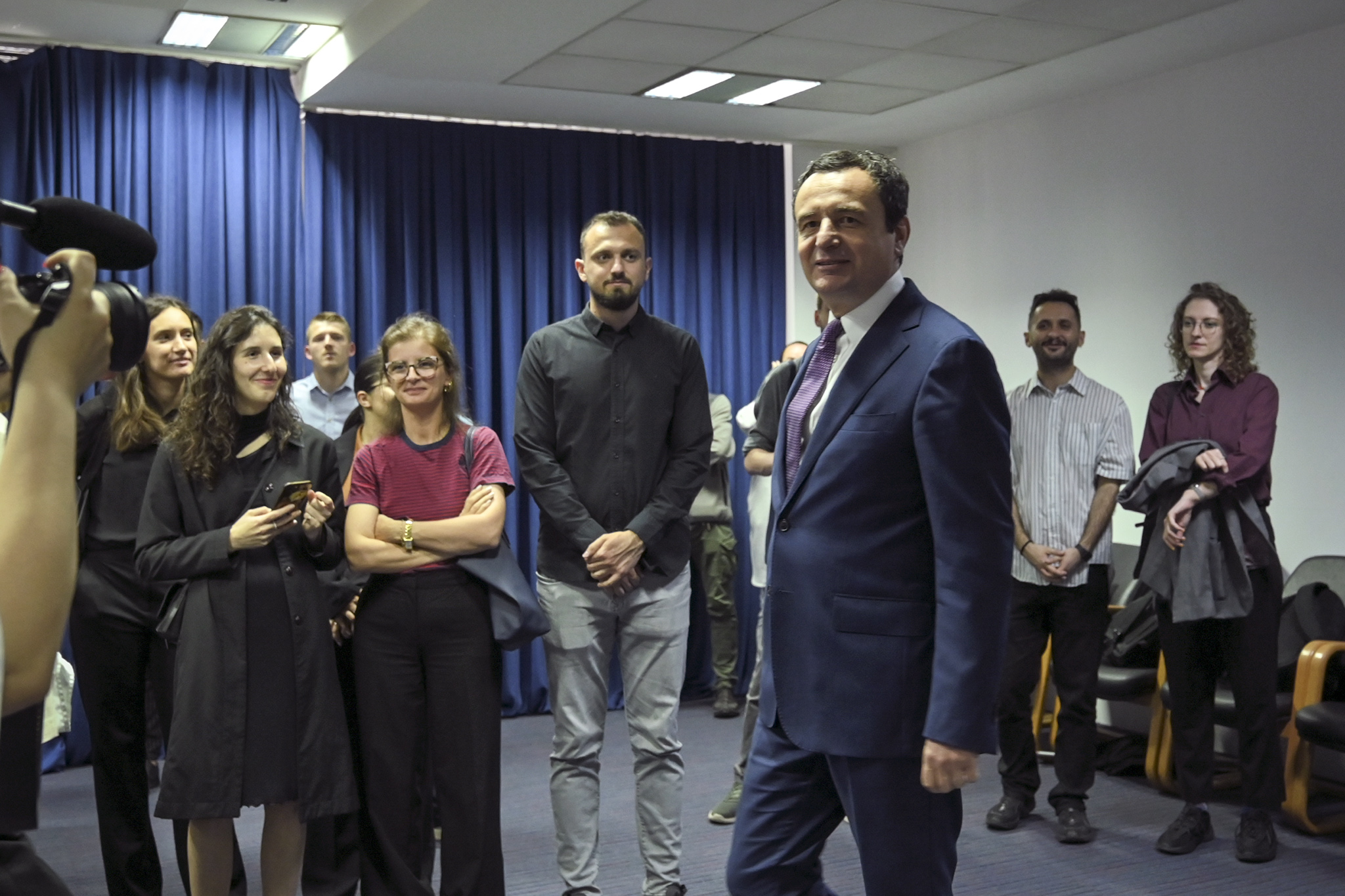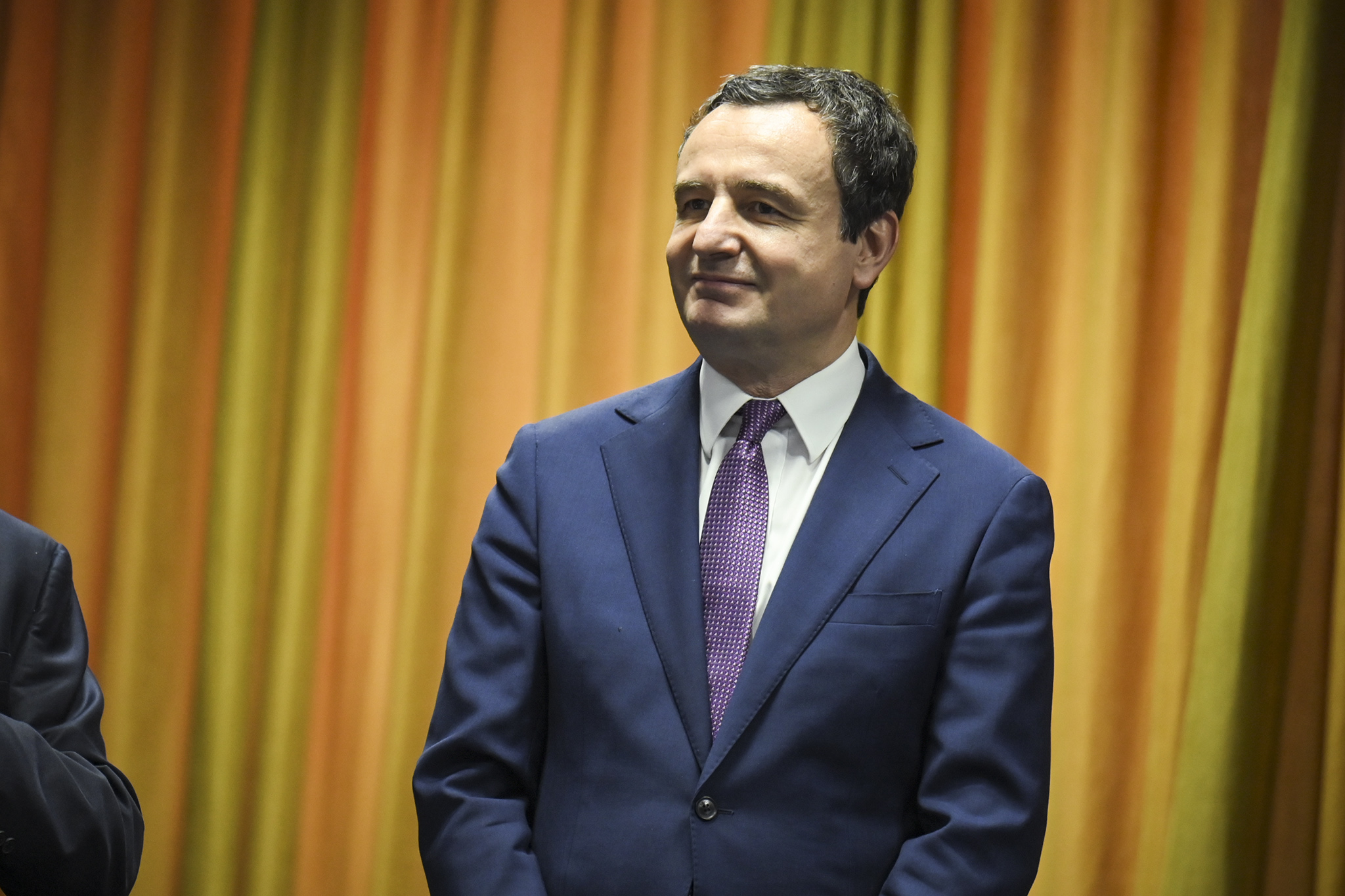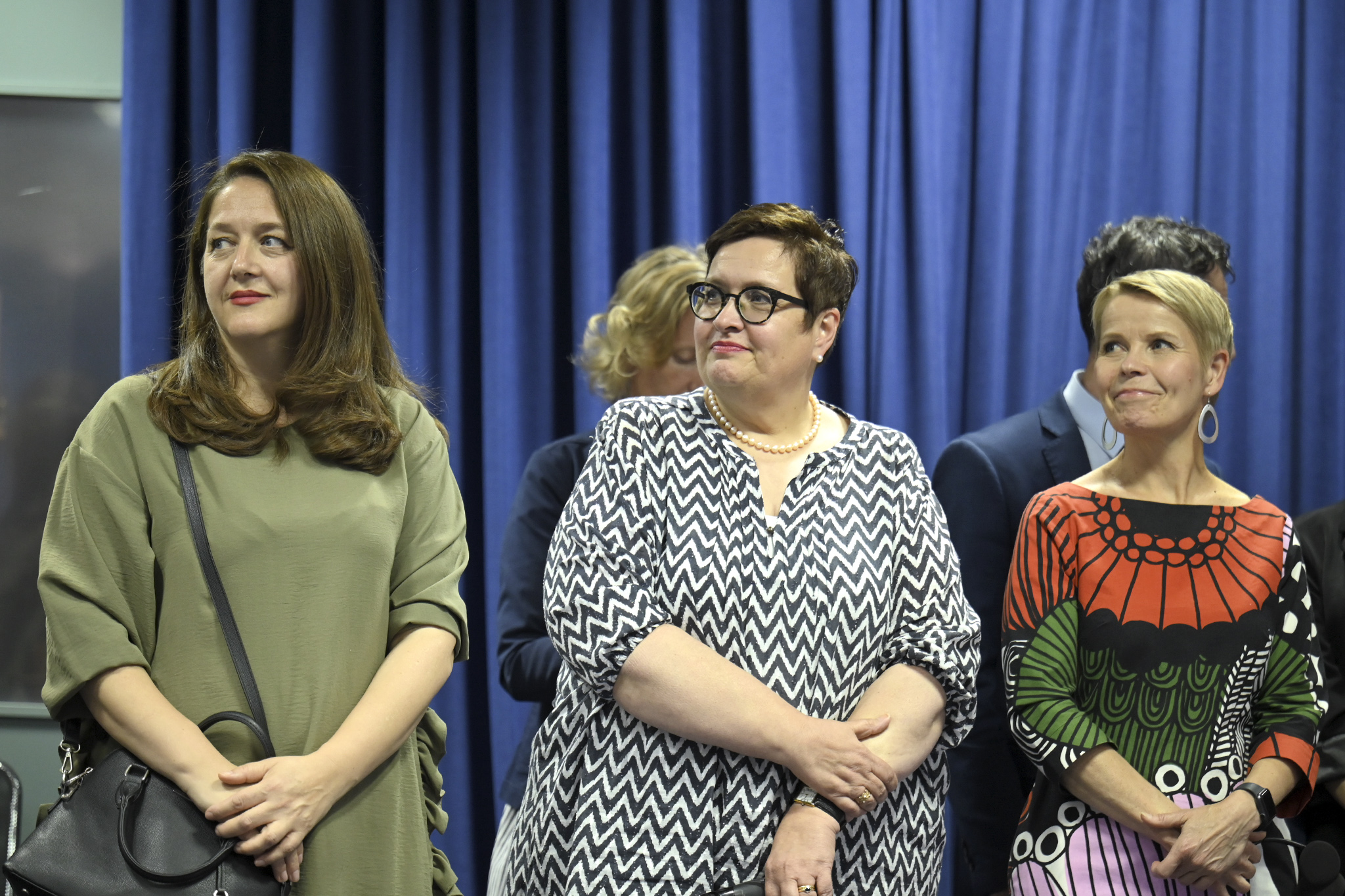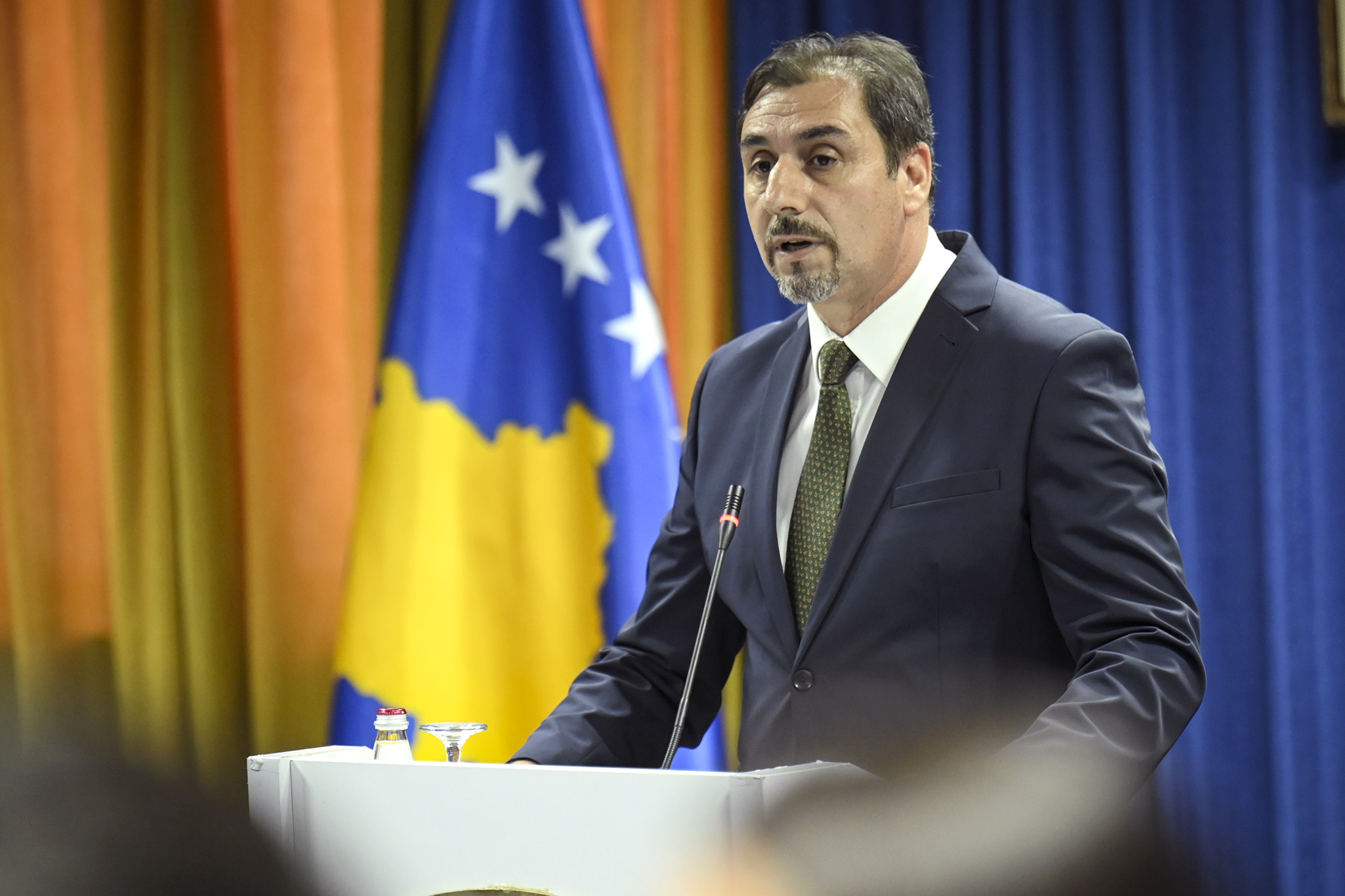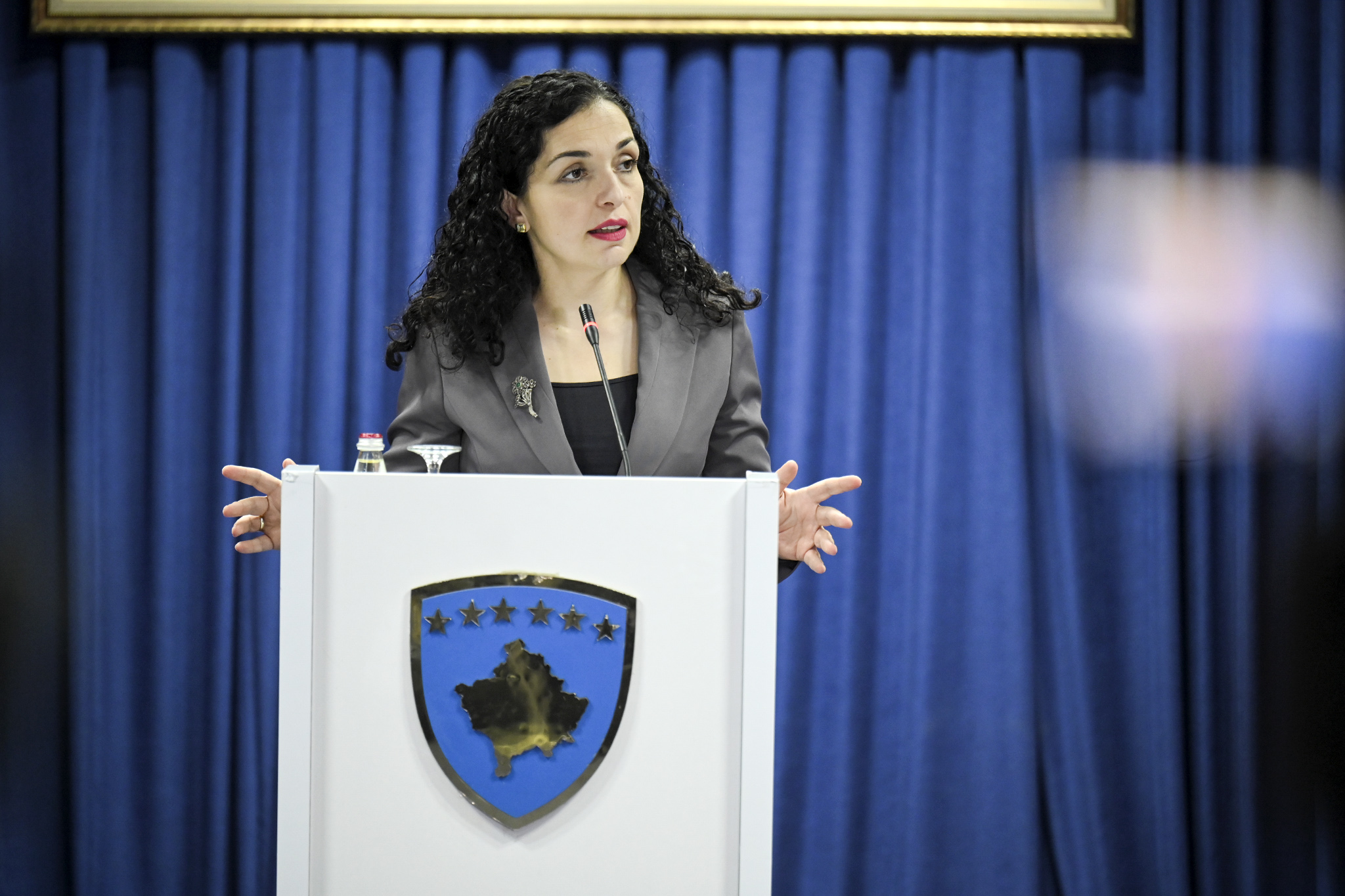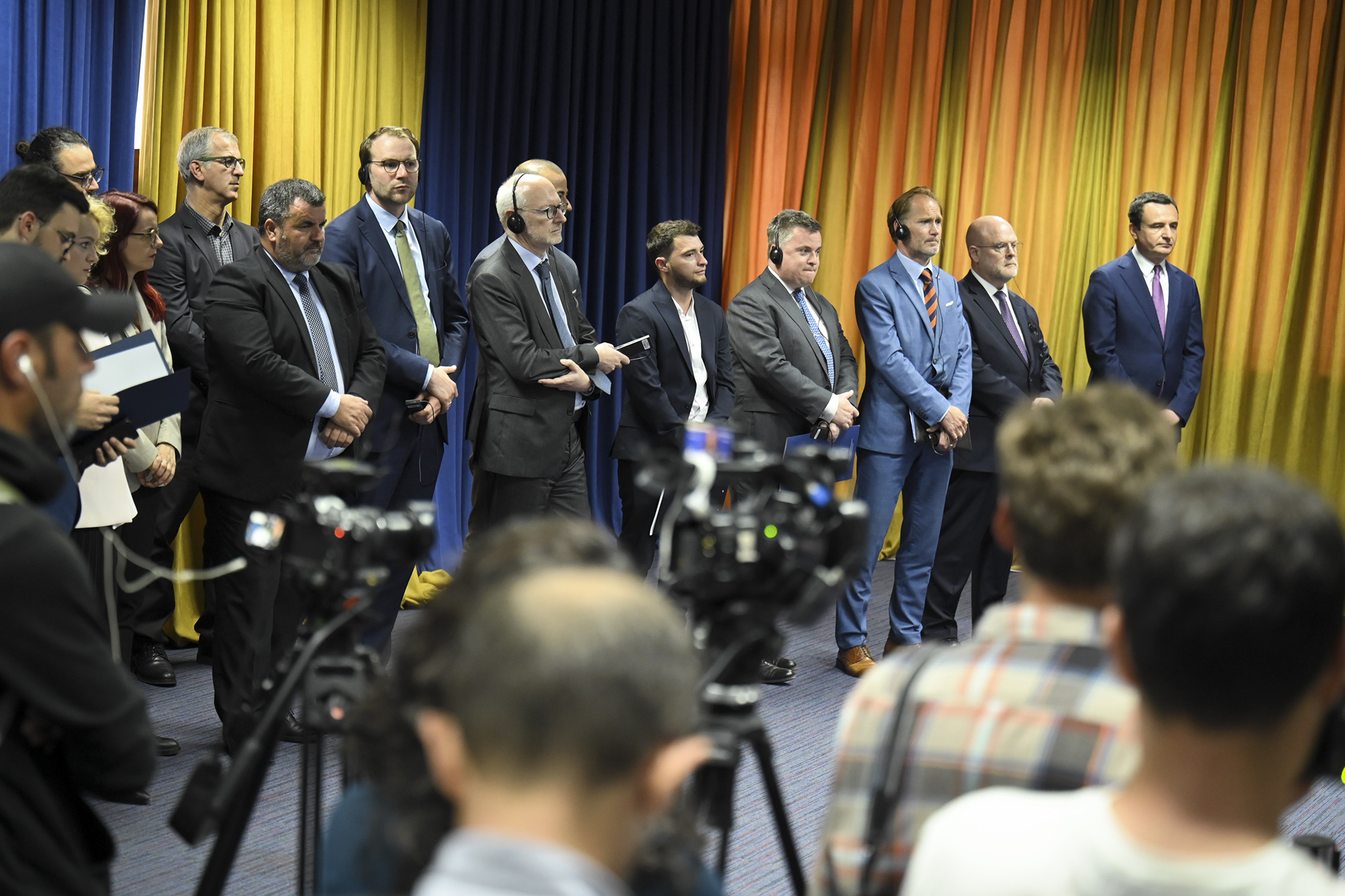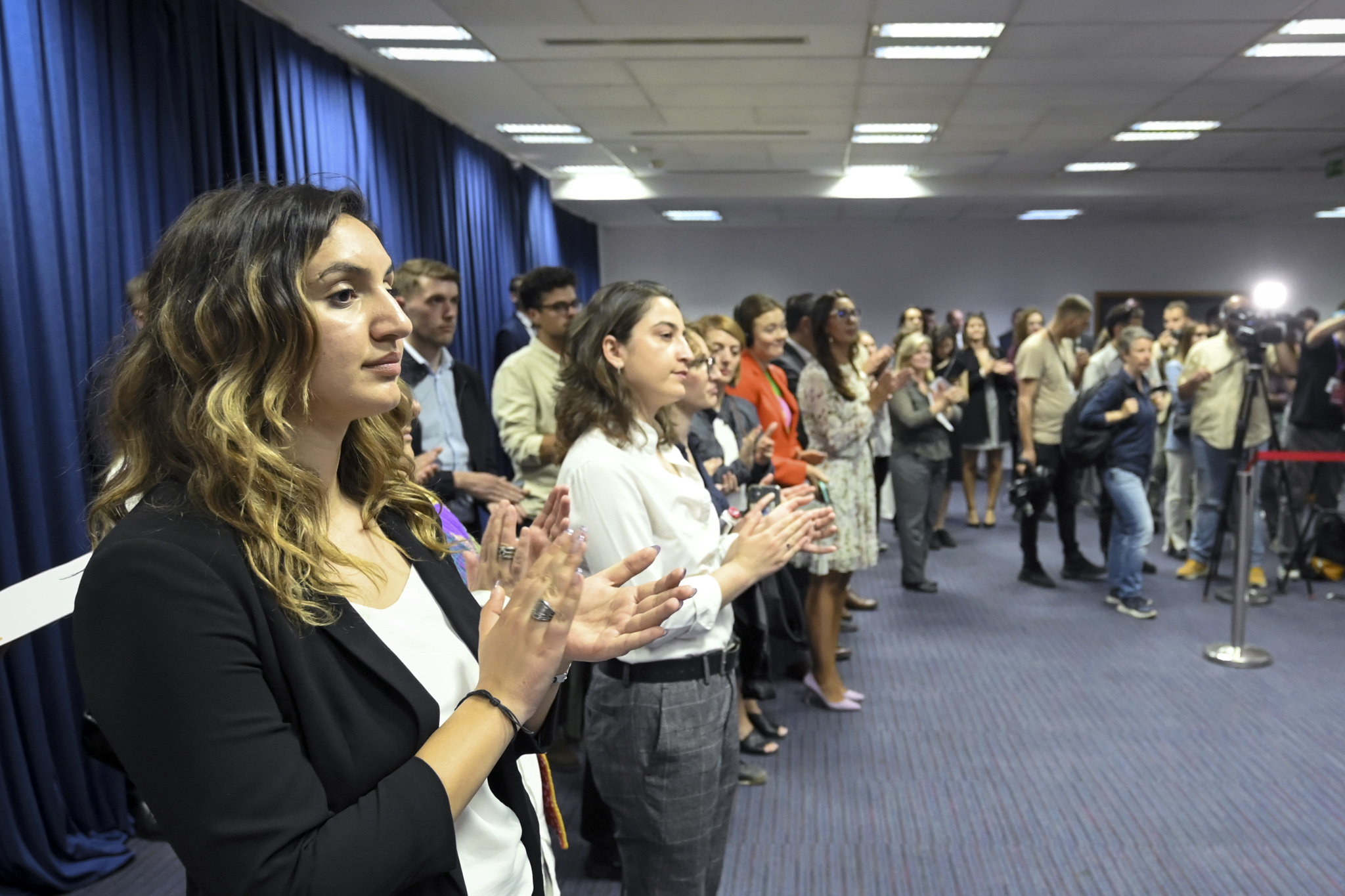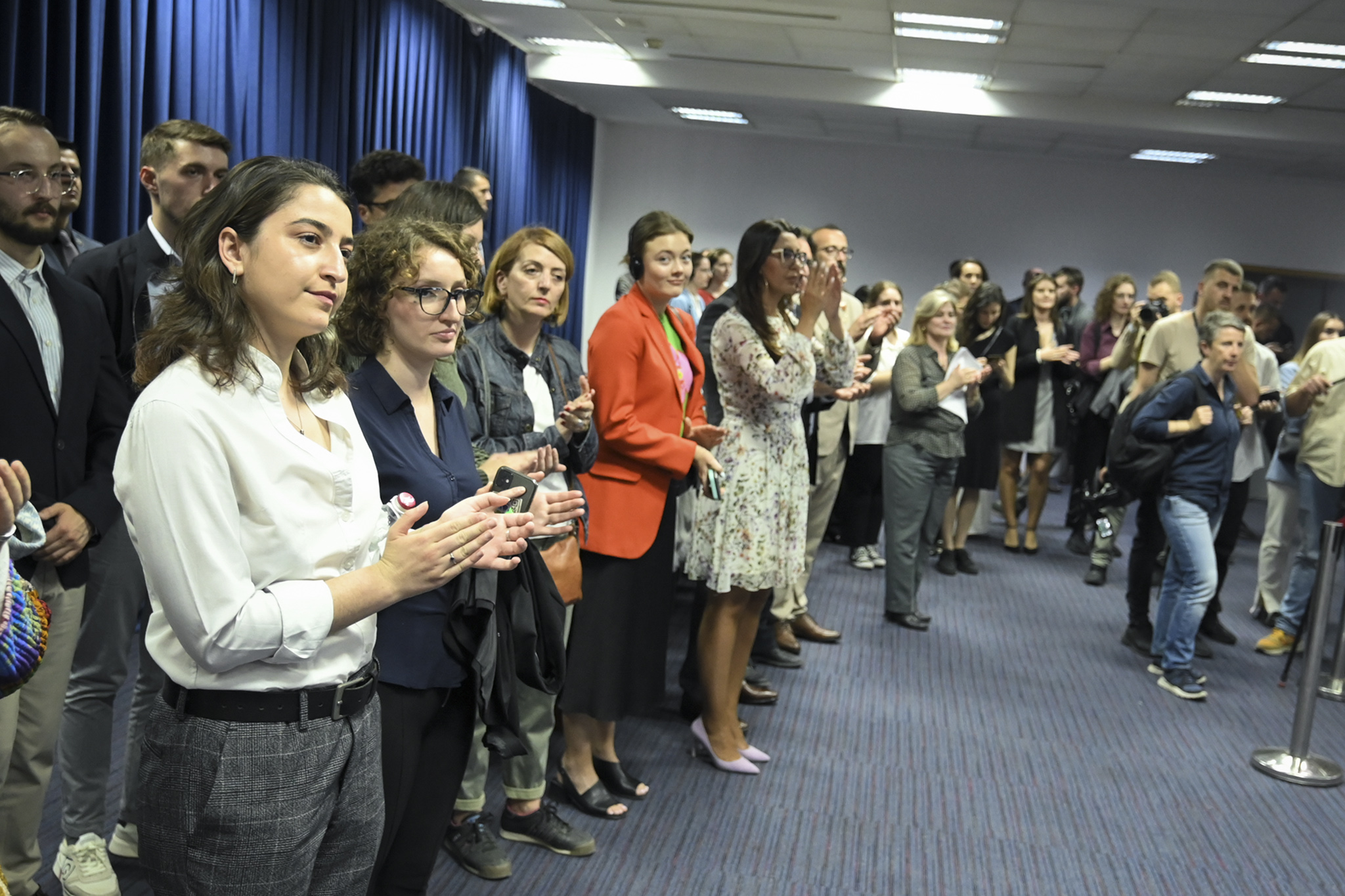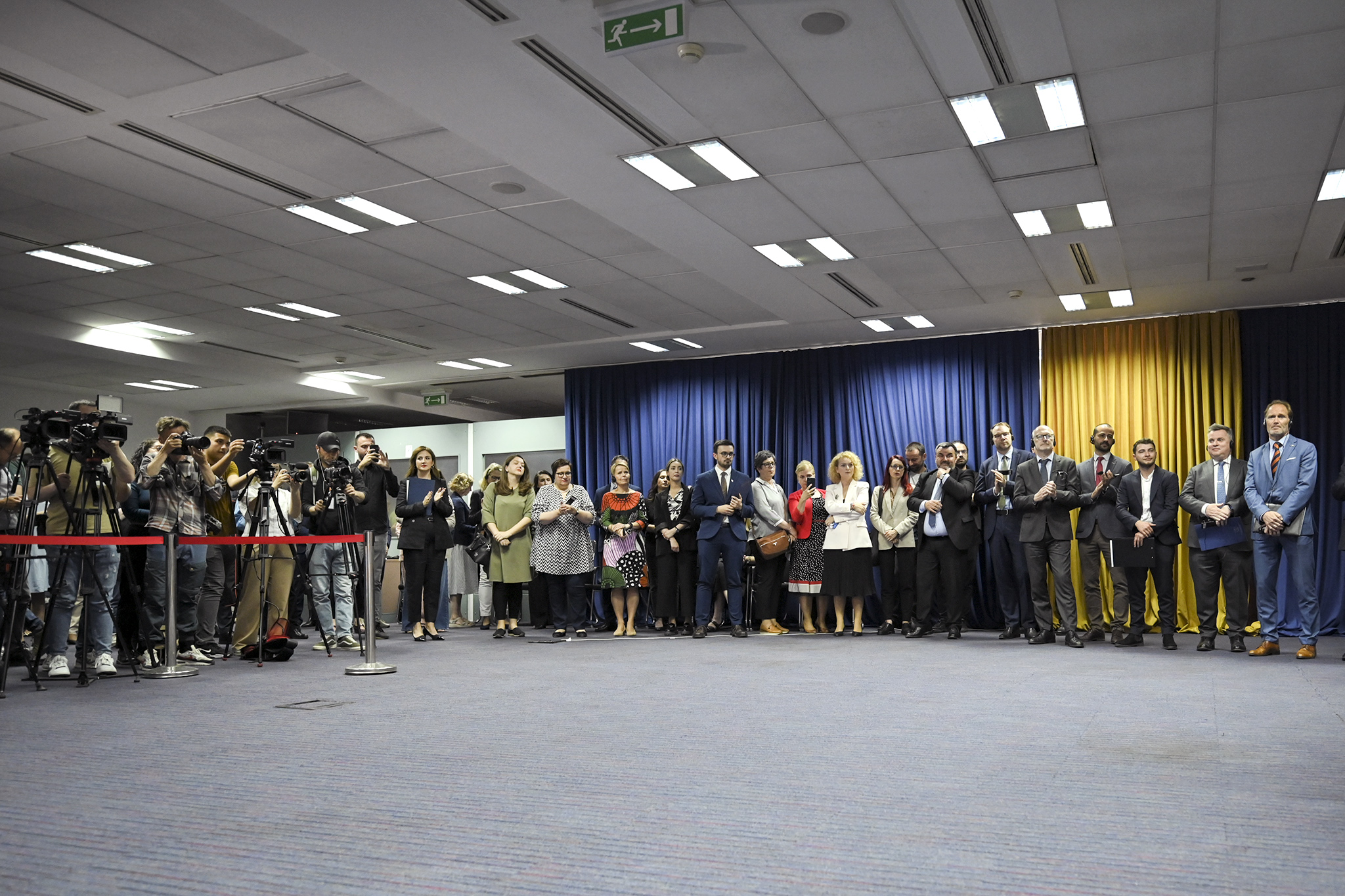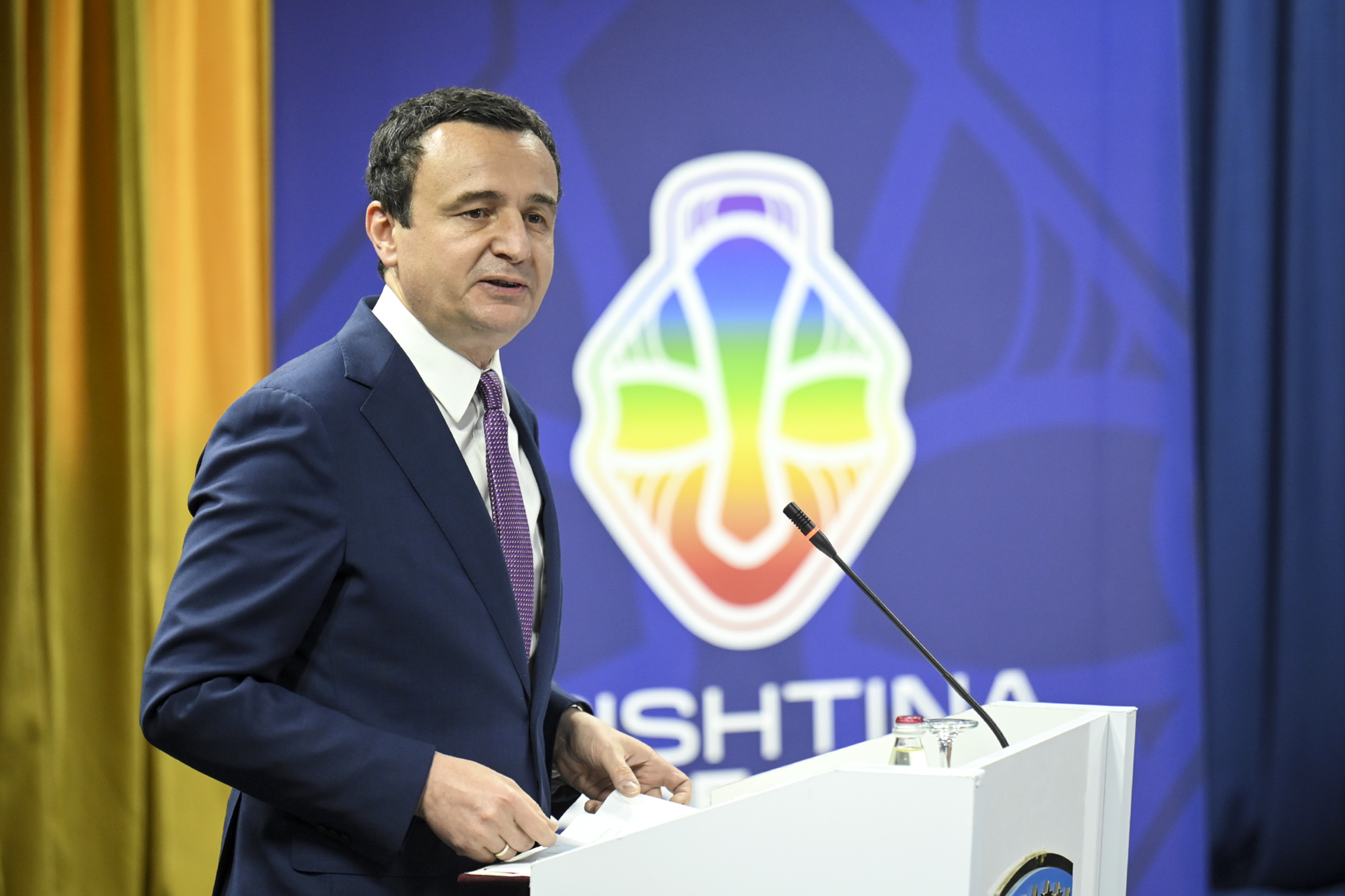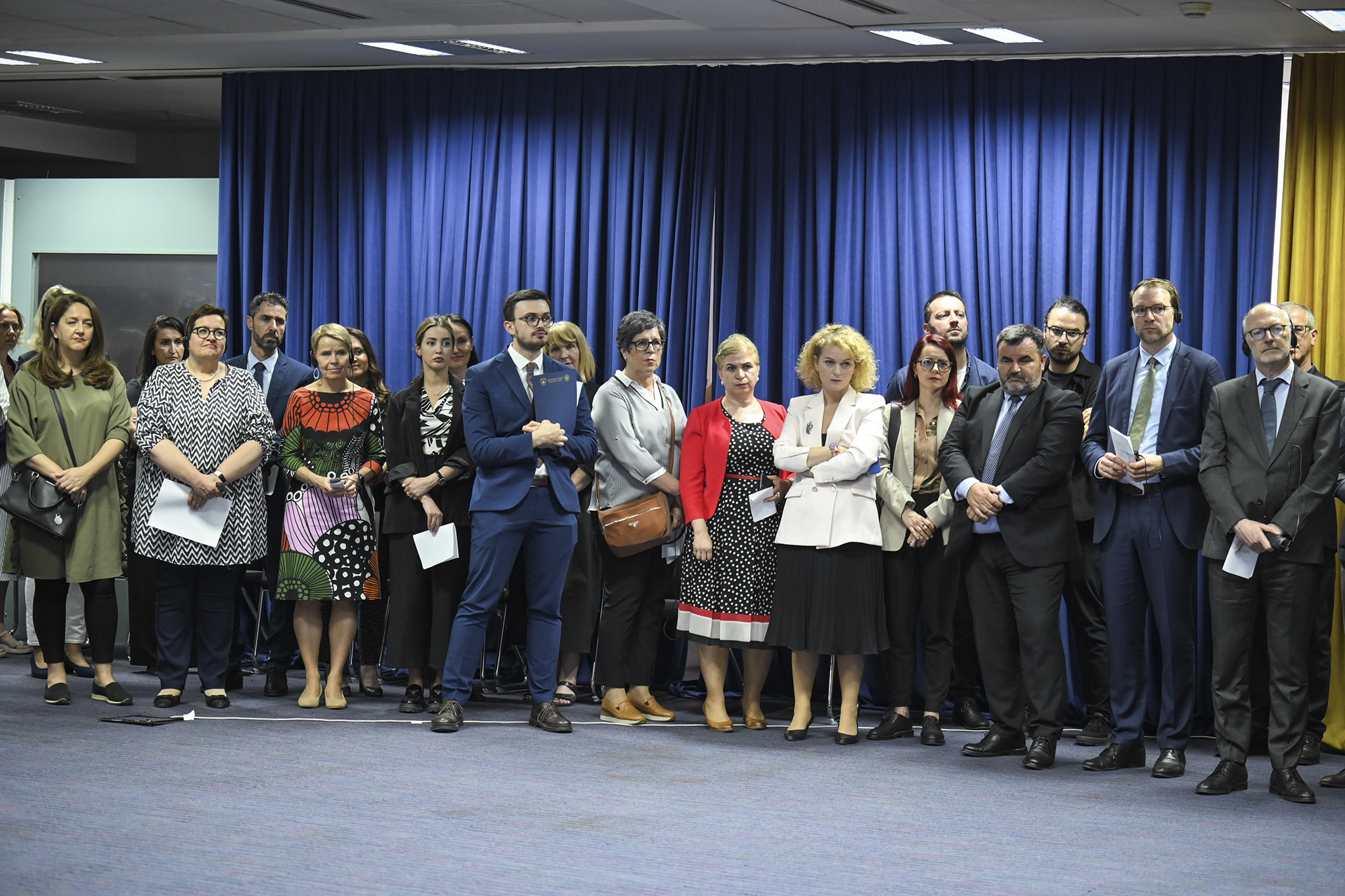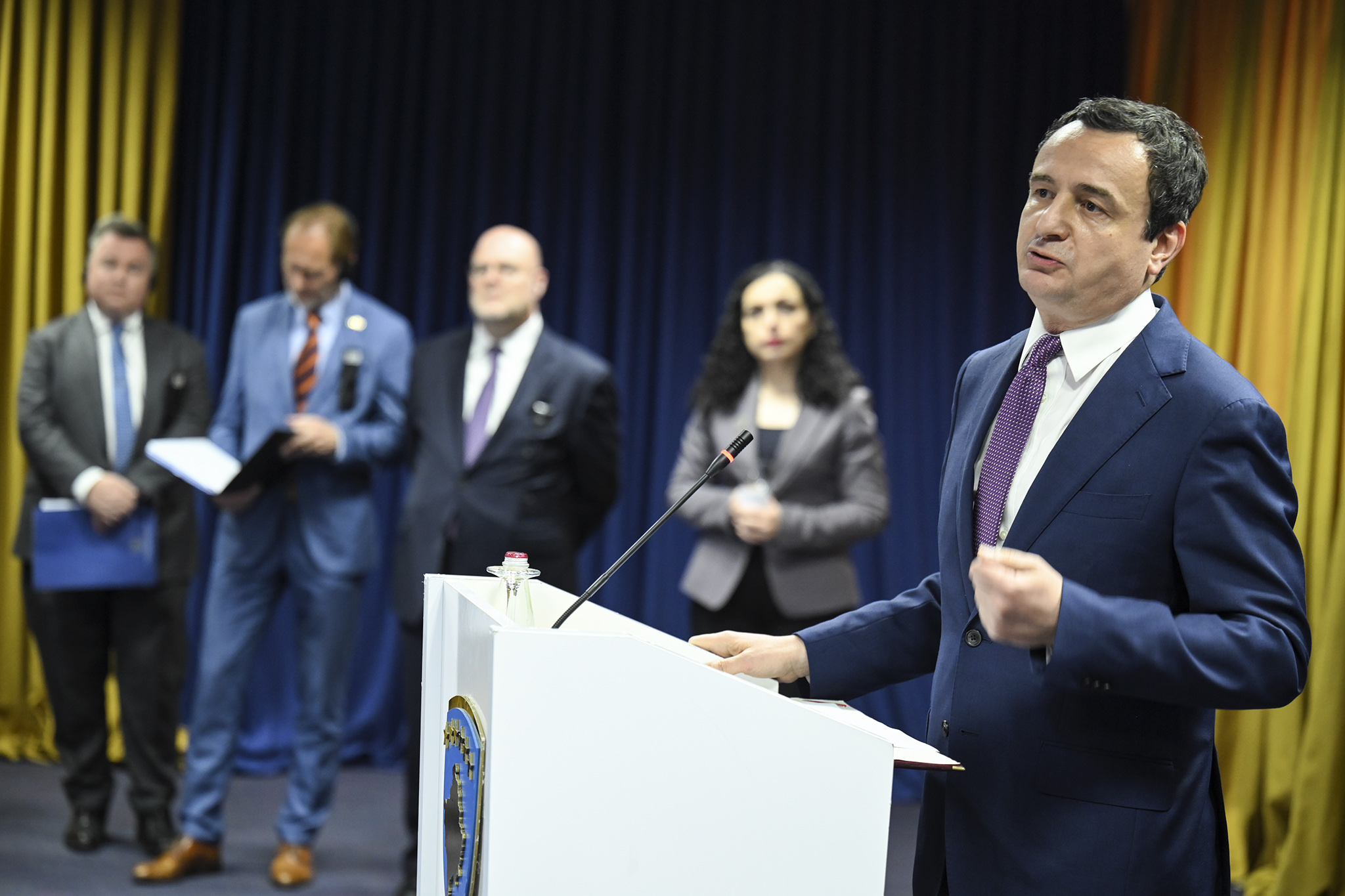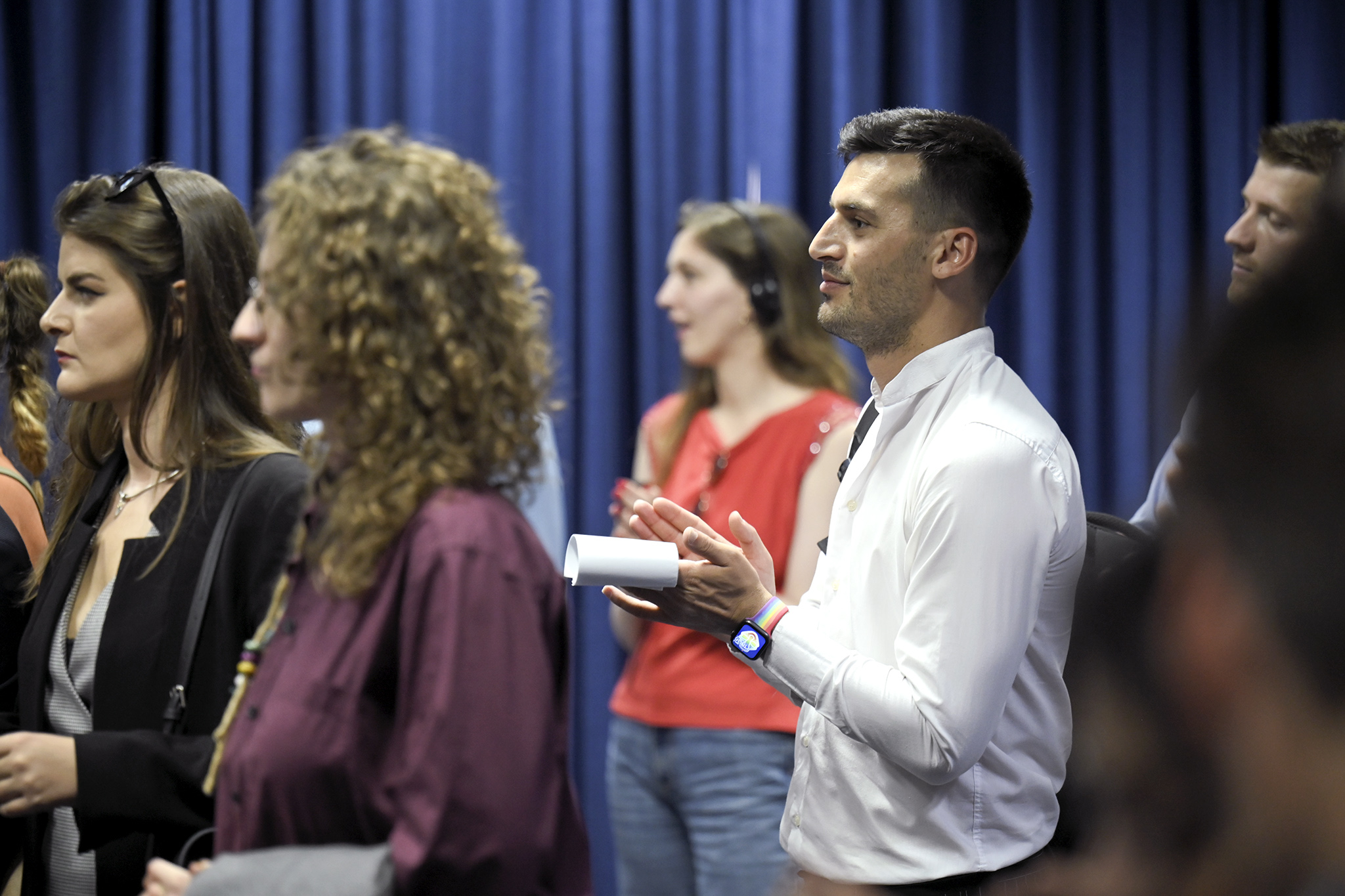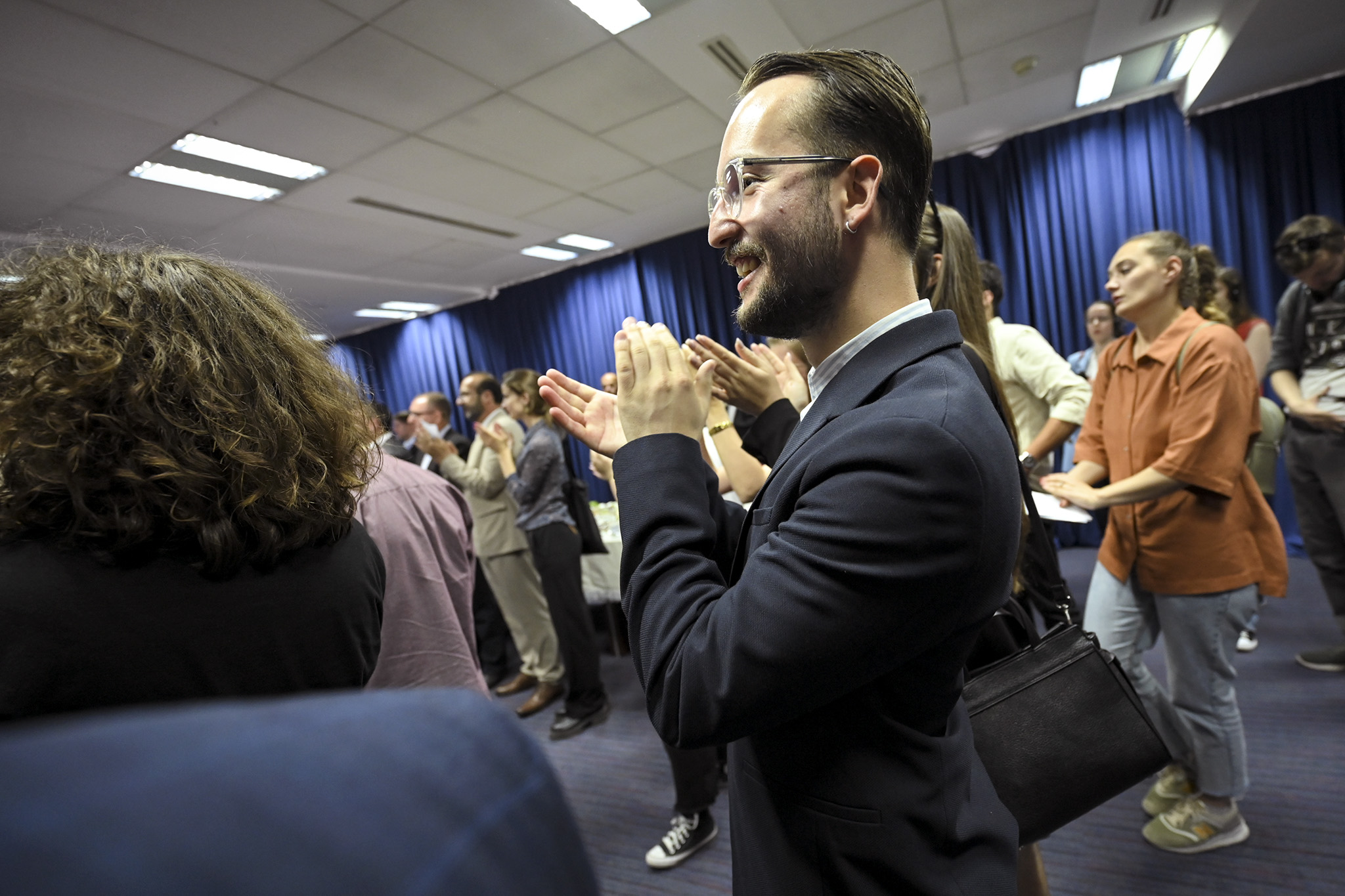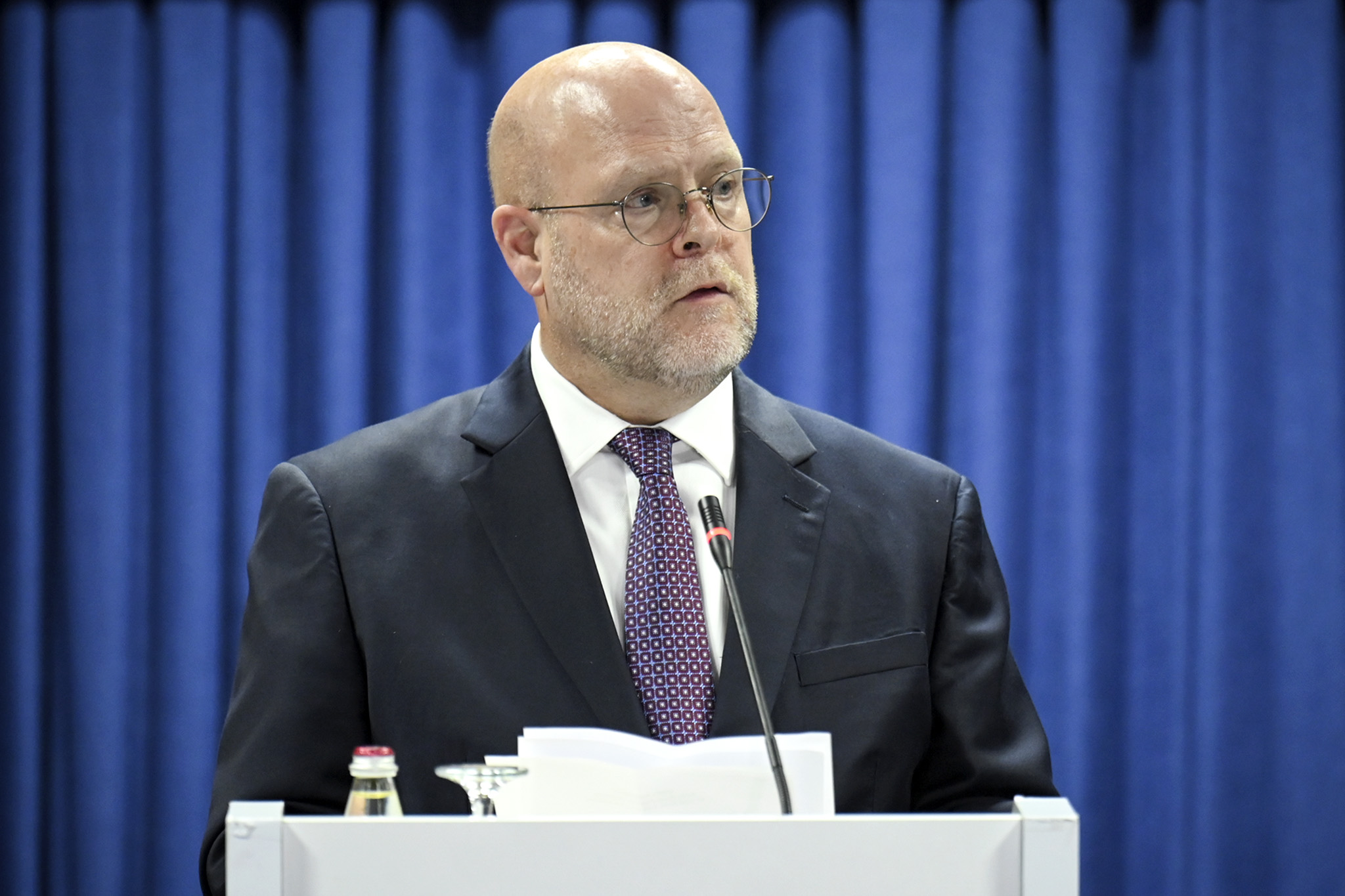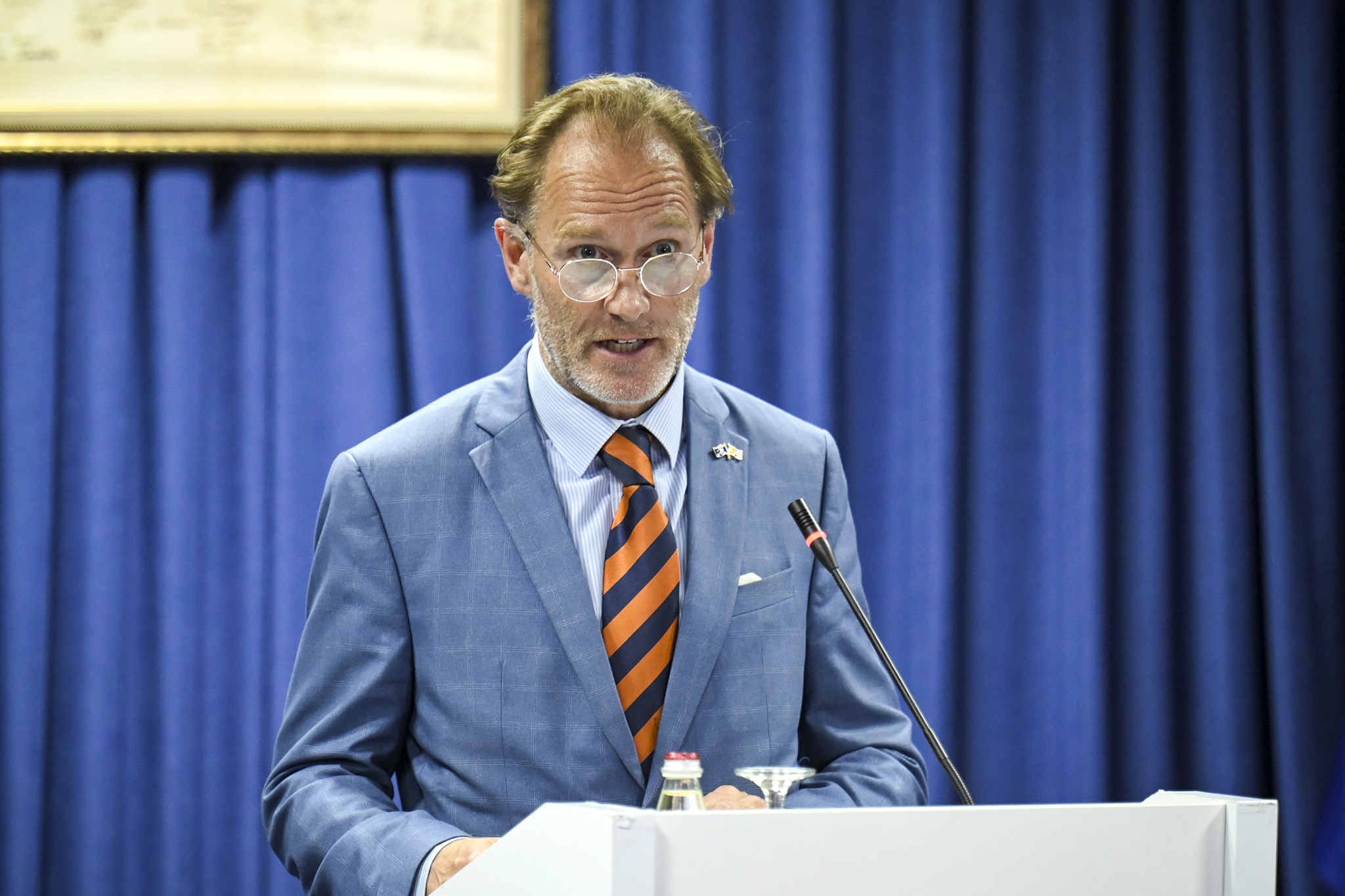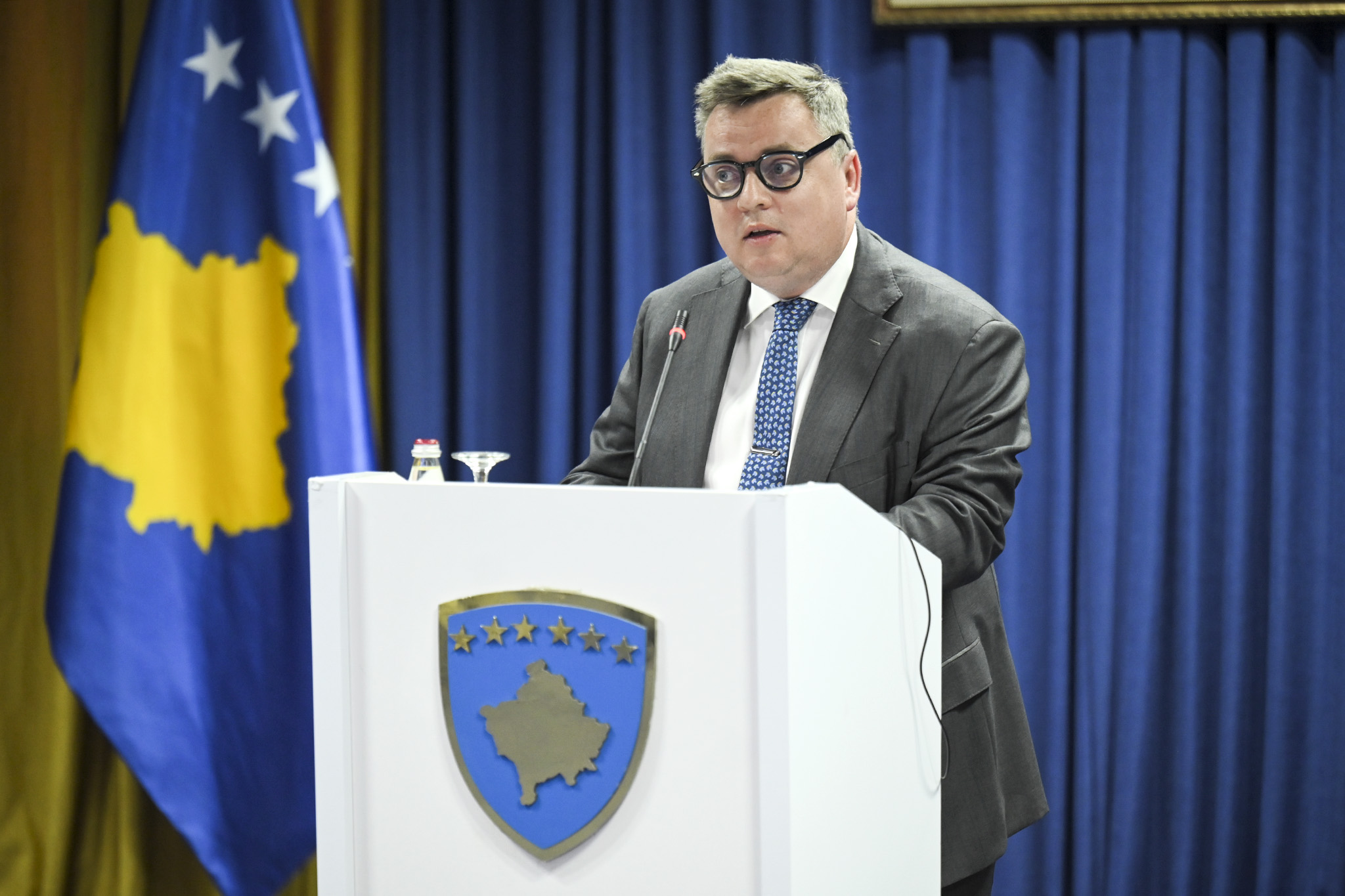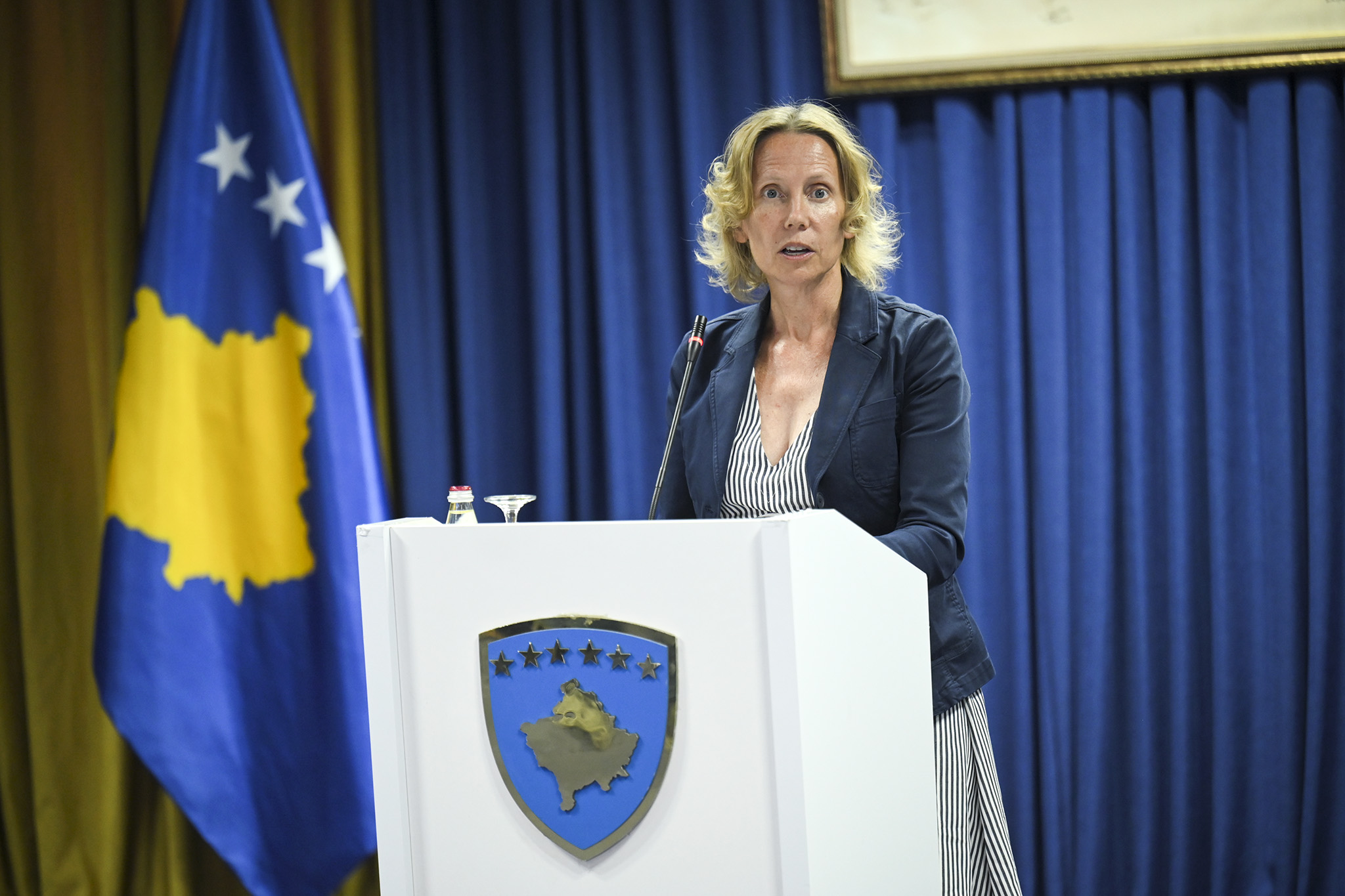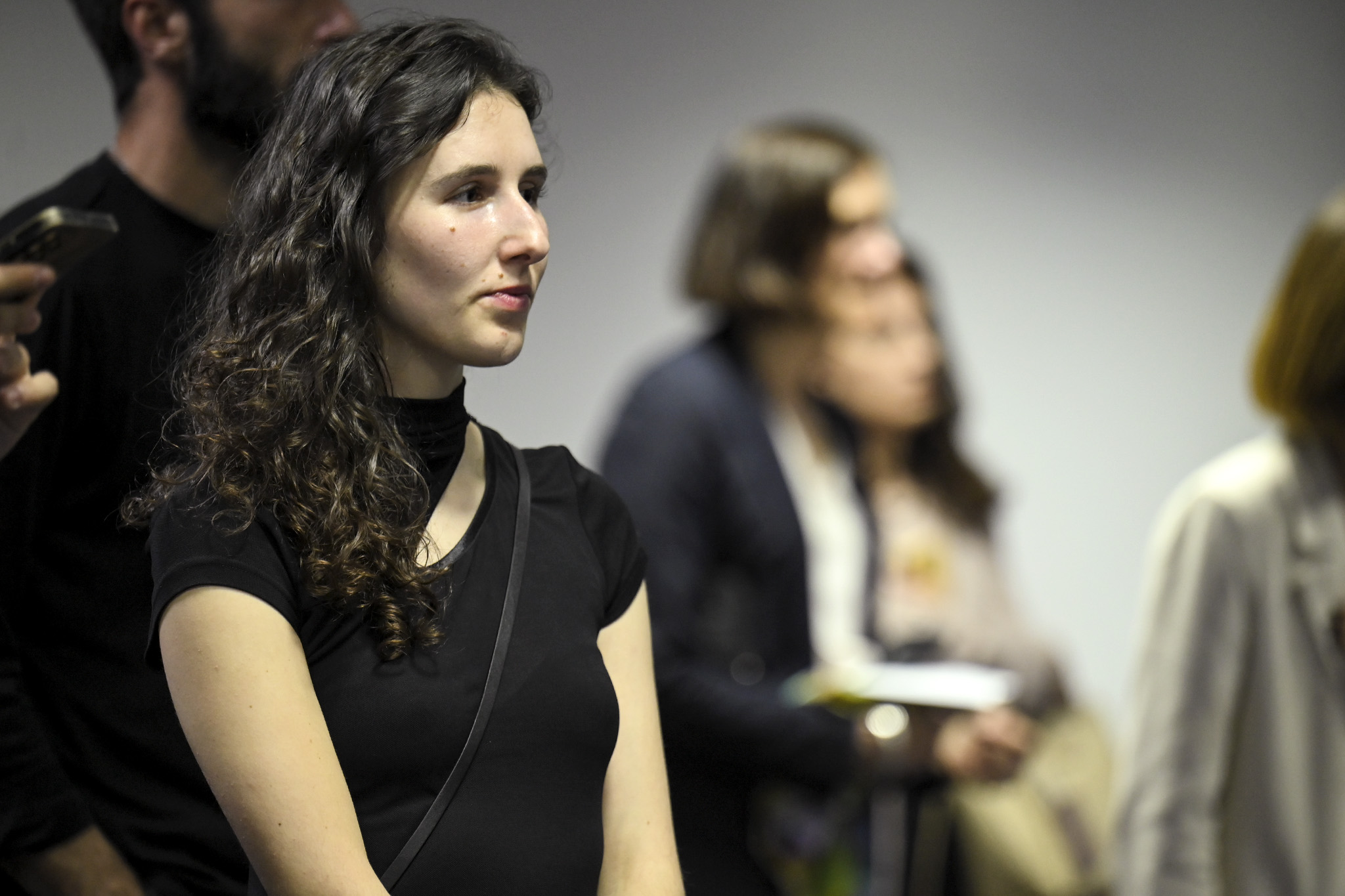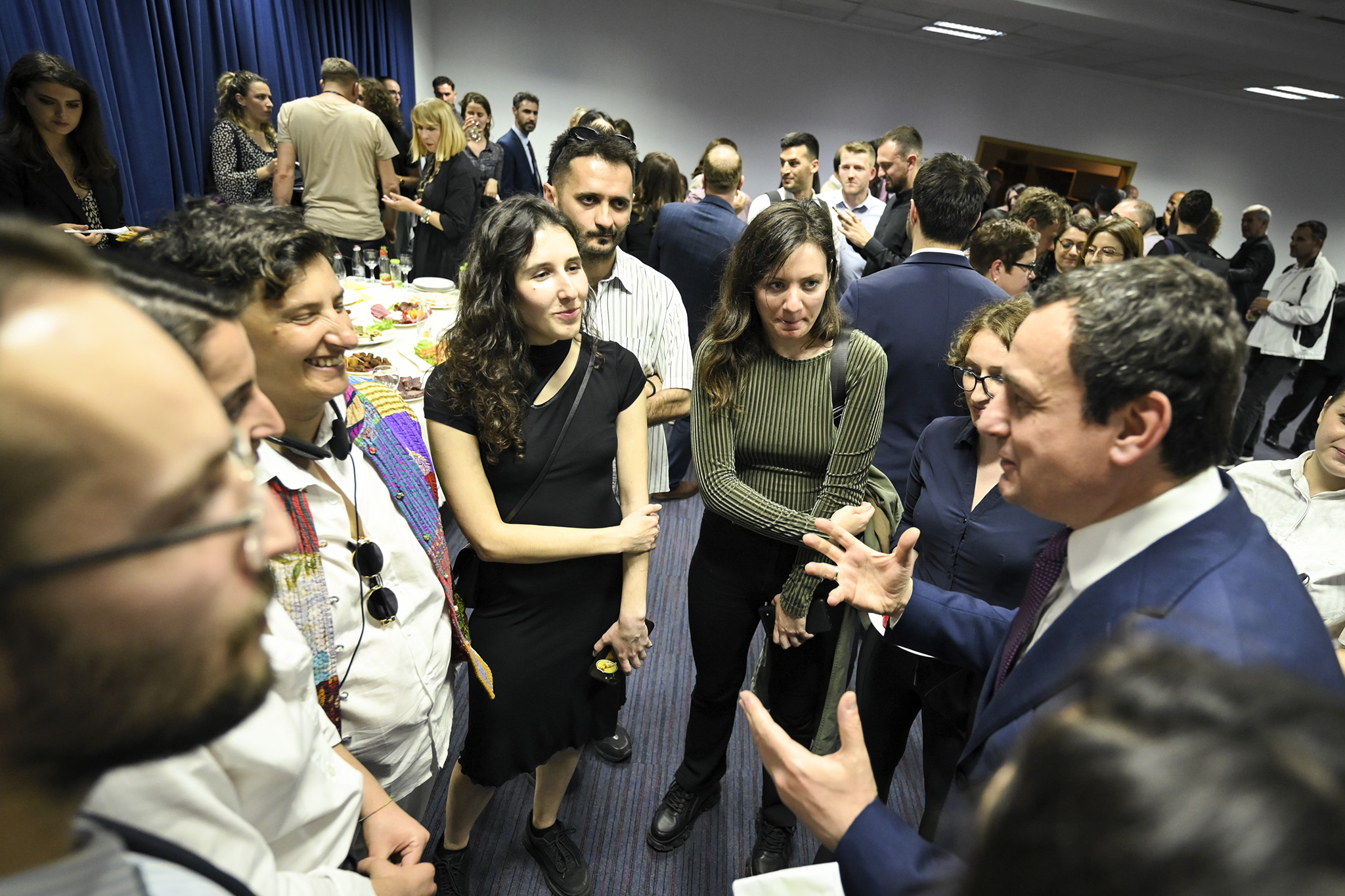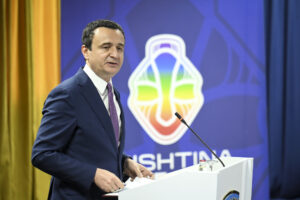Prishtina, 5 June, 2023
The Prime Minister of the Republic of Kosovo, Albin Kurti, participated today in the opening ceremony of Pride Week/Pride Parade, with the motto “I love you the way you are!” which was organized by the Office for Good Governance within the Office of the Prime Minister, in cooperation with civil society organizations CSGD and CEL.
In front of many attendees, diplomatic representatives, members of civil society and other guests, Prime Minister Kurti said that at the beginning of Pride Week, we remember that the freedom to love is a universal right, calling love a kind of condition of freedom.
He said that the ancients understood Love as a bond between souls, which goes beyond the physical world. They valued not only romantic relationships, but also relationships cultivated with parents, neighbors, strangers, and deities.
Pride Week aims to support and promote diversity and equality for the LGBTI community in the Republic of Kosovo, through various activities.
Prime Minister Kurti’s complete speech:
– From Plato’s Symposium: Myth of Aristophanes
Once upon a time, there were three kinds of human beings: male, descended from the sun; female, descended from the earth; and androgynous, with both male and female elements, descended from the moon. Each human being was completely round, with four arms and four legs, two identical faces on opposite sides of a head with four ears, and all else to match. They walked both forwards and backwards and ran by turning cartwheels on their eight limbs, moving in circles like their parents, the planets.
As they were powerful and unruly and threatening to scale the heavens, Zeus devised to cut them into two ‘like a sorb-apple which is halved for pickling’ and even threatened to cut them into two again so they might hop on one leg. Apollo then turned their heads to make them face towards their wound, pulled their skin around to cover up the wound, and tied it together at the navel like a purse. He made sure to leave a few wrinkles on what became known as the abdomen so that they might be reminded of their punishment.
After that, human beings longed for their other half so much that they searched for it all over. When they found it, they wrapped themselves around it very tightly and did not let go. As a result, they started dying from hunger and self-neglect. Zeus took pity on the poor creatures and moved their genitals to the front so that those who were previously androgynous could procreate, and those who were previously male could obtain satisfaction and move on to higher things.
This is the origin of our desire for other human beings. Those of us who desire members of the opposite sex were previously androgynous, whereas men who desire men and women who desire women were previously male or female. When we find our other half, we are ‘lost in an amazement of love and friendship and intimacy’ that cannot be accounted for by a simple appetite for sex but rather by a desire to be whole again and restored to our original nature. Our greatest wish, if we could have it, would be for Hephaestus to meld us into one another so that our souls could be at one and share once more in a common fate.
Burton, N. (2010) Aristophanes Archives ” Neel Burton Author Website and blog, Neel Burton author website and blog. Available at: https://neelburton.com/tag/aristophanes/ (Accessed: 05 June 2023).
As we enter the week of pride we are reminded that the freedom to love is a universal right; in fact, Love is a kind of condition of freedom. But what exactly is Love? Is it merely an emotion, or does Love have the power to change the world? Is it solely a connection between two hearts, or is it also a bond made between friends, family, and even strangers?
Ancient people understood Love to be a metaphysical bond between souls, extending beyond mere physicality. They accorded its importance not merely to romantic unions but also to relationships cultivated with one’s parents, neighbors, strangers, and deities. Honoring Love was performed through means such as acts of kindness, fidelity, and hospitality. Having perceived its spiritual potency, they respected Love and strove to nurture its development, believing in its ability to surmount even the most seemingly insurmountable of obstacles.
Given this, it is clear that Love is a powerful unifying force that binds us together in an intangible and profound way beyond that of lust or mere companionship. Love is more than an expression of passion or desire: it is an ethical code, which sets forth laws to be obeyed, helps people maintain meaningful social bonds, and empowers us to confront and transcend even the toughest of challenges.
While Love is a condition for freedom, paradoxically, Love can only be attained in freedom, as freedom is necessary for Love to manifest itself and flourish. Without it, Love is diminished and in despair. This year Kosova’s sixth Pride Week is taking place in an incredibly significant month that marks extremely momentous events in Kosova’s history. June 10th marks the League of Prizren, a political movement organized in 1878 seeking to secure Kosova’s autonomy, while June 12th the end of the long and arduous war, which went hand in hand with the movement for Kosova’s self-determination.
In the face of seemingly insurmountable tribulations such as war and foreign occupation, Love has been an empowering and unifying force in the struggle for Kosova’s freedom. Each day, with solidarity, patriotism, and resilience, the practitioners of Love have challenged the borders of authoritarianism by forcing progress. Such devotion has allowed freedom to become an accessible reality, transitioning our perception of Love from a metaphysical bond to a condition of liberty—a force that cannot be suffocated by hatred and persecution.
Invoking the spirit of elation, we must humbly recognize that at the heart of our beloved nation lies the belief that all individuals are deserving of respect and full human rights – irrespective of race, religion, ethnicity, gender identity, or sexual orientation. To sustain the fundamental freedoms we cherish, we must construct a foundation firmly established in the ethos of amour and compassion, so that the tragedies of our past will not become a recurrent motif in the annals of our history.

